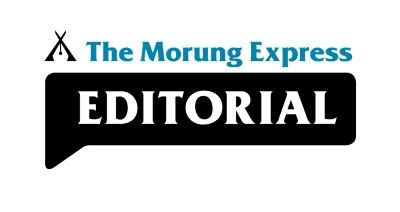
Dr Asangba Tzudir
In an age when every form of voice competes to be heard, truth itself often becomes the first casualty. Pope Leo’s recent reminder that “the world needs free, rigorous, and objective information and the courage to distinguish fact from fiction, true from false” comes as a moral and spiritual call not just for journalists but for every citizen of this digital world. While the flow of information defines our times, Pope’s words echo across the noise of misinformation and manipulated narratives.
Today, anyone with a phone in hand is said to be having the ‘world in their hands’ and thus any motive can shape an opinion. When we look at different Social media platforms, the way it operates have blurred the line between news and noise, between real reporting and rumour. The democratization of information which was once celebrated as the triumph of free expression has paradoxically created waves of uncertainties. Ironically, falsehoods travel faster than facts while drowning out reason. From this it can be rightly said that the Pope’s appeal, therefore, is not merely religious but profoundly civic and human.
While free information can be said to be a foundational aspect of democracy, freedom without rigor carries the risk of turning any important discourse into chaos. The responsibility of the media, whether traditional or digital, is not only to inform but to verify which should be directed towards making the masses ‘well-informed.’ In this regard, truth, after all, is not for the sake of popularity or convenience. It demands patience, evidence, and integrity in the process of informing and truth telling. From misinformation to political propaganda, where facts can easily be distorted and how swiftly lies can shape reality, the cost is heavy and where lives, trust, and the moral fabric of the society get eroded.
This call for objectivity of information is not merely directed at the media especially the press, but each individual, as consumers and sharers of information, should act as watch keepers of truth. Instances like the viral post we forward without checking, the sensational or dramatized banner headline we believe and endorse without question are the ‘little’ acts when multiplied creates falsehoods and this is what the Pope warns against. Today, there is a truth crisis which is not external but lives within our attention seeking habits and seeking paths that provides easy answers.
The takeaway from Pope Leo’s statement is an invitation to revisit what is known as ‘intellectual humility’ which encompasses the willingness to question, to verify, and going to the extent of even doubting the things we wish were true. While the era has seen a shift from truth to ‘post-truth’, a return to truth calls for such intellectual humility from educators, journalists, and faith leaders, and thereby rebuild a culture of discernment that values accuracy over speed, and understanding over blind applause.
When information is corrupted, freedom of thought withers away. A society that cannot tell or differentiate fact from fiction can be easily manipulated, divided, and controlled. The way out of this lies in education and which requires teaching people to think critically, check and verify sources, and listen across differences.
Pope Leo’s message is a timely reminder that truth is not a possession but a pursuit where, along the way, it demands courage to speak, the will power to investigate, and having the right conscience to resist any form of distortion. In this age of technology humans need to defend the truth and in the process assert what makes a human a moral being towards the creation of a just and free world.
(Dr Asangba Tzudir writes a weekly guest editorial for The Morung Express. Comments can be emailed to asangtz@gmail.com)






